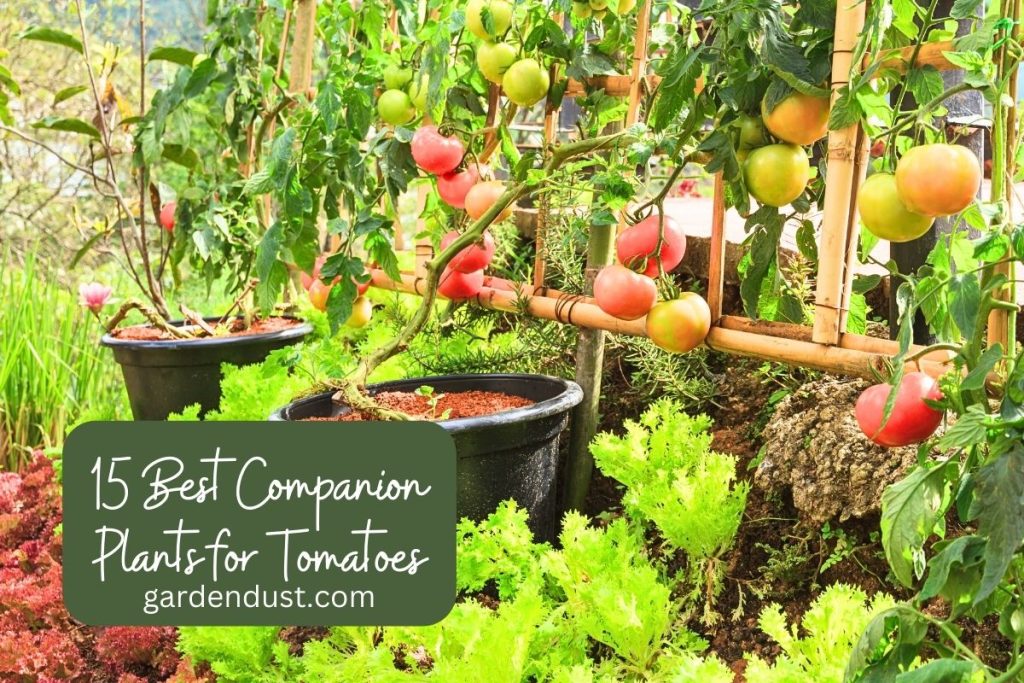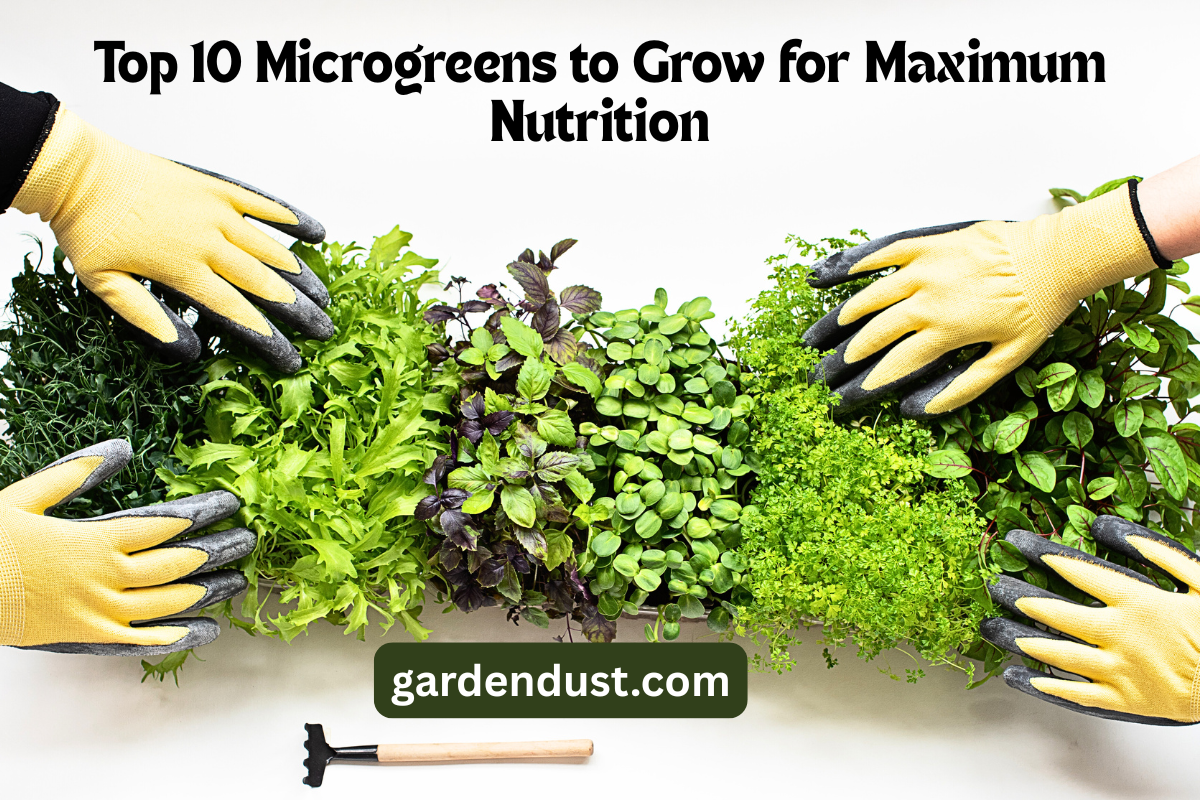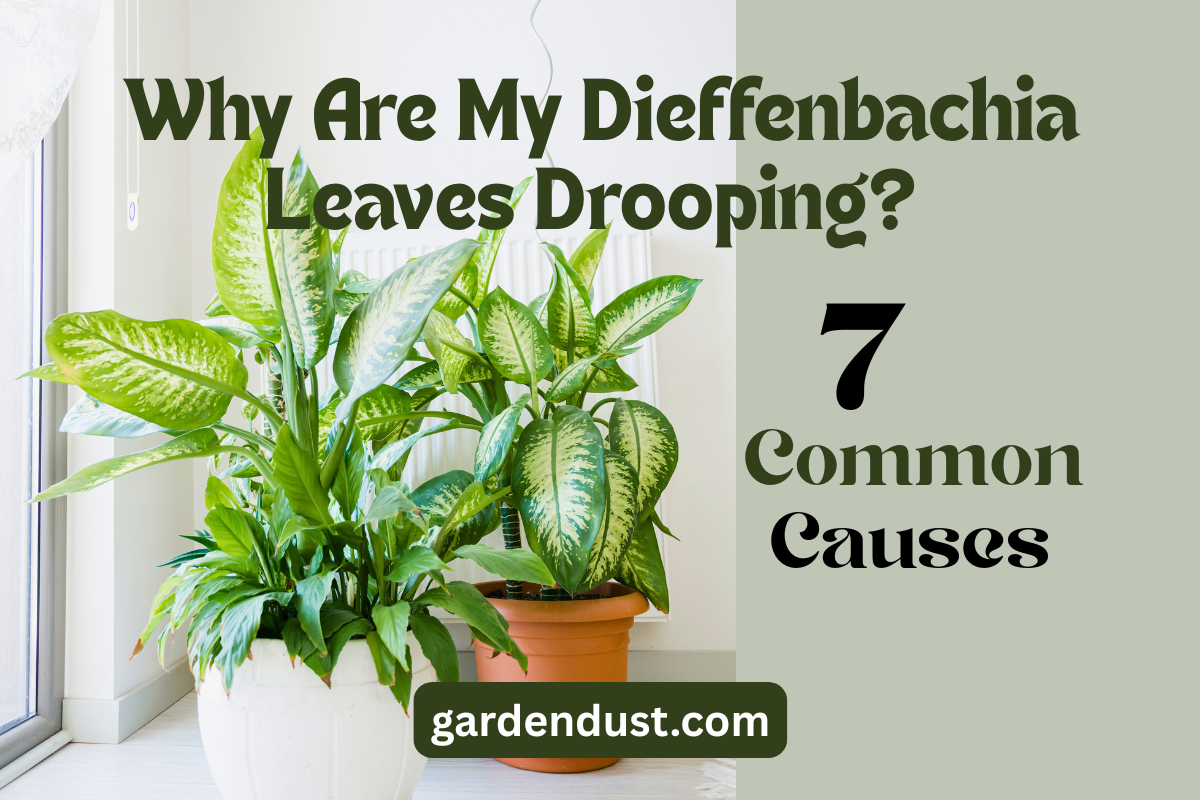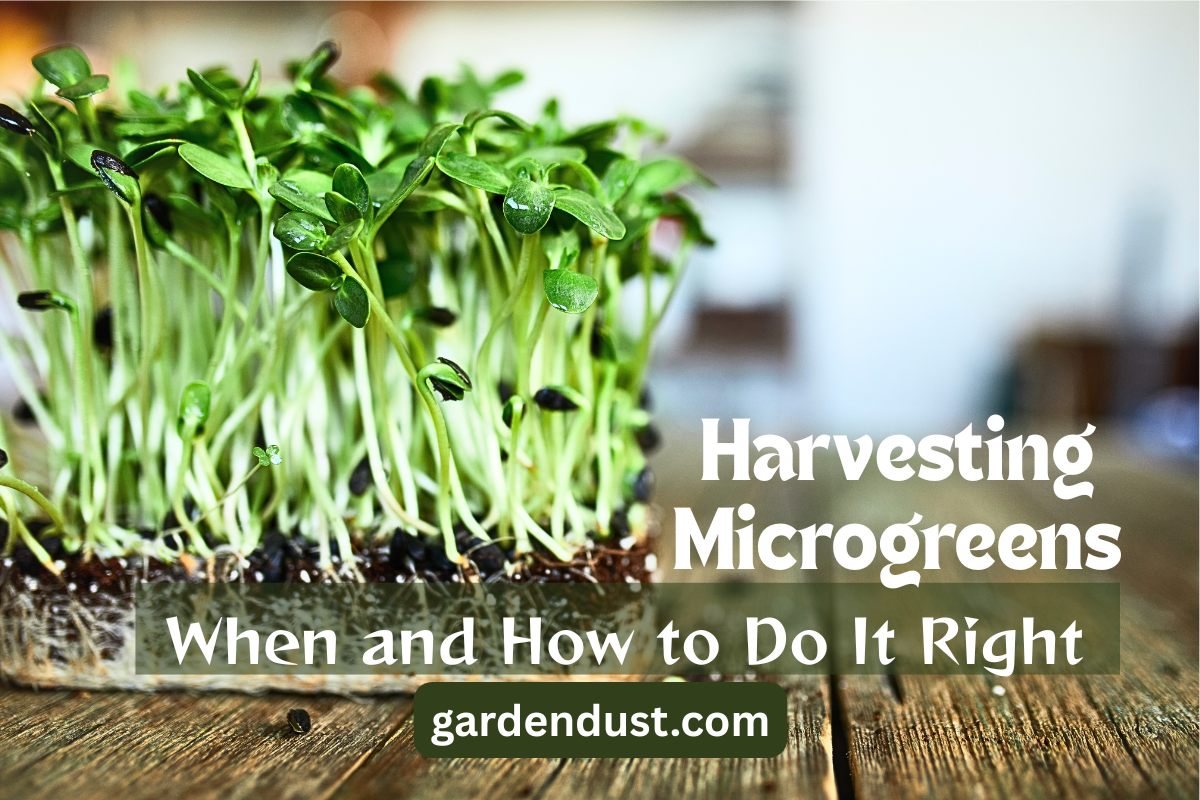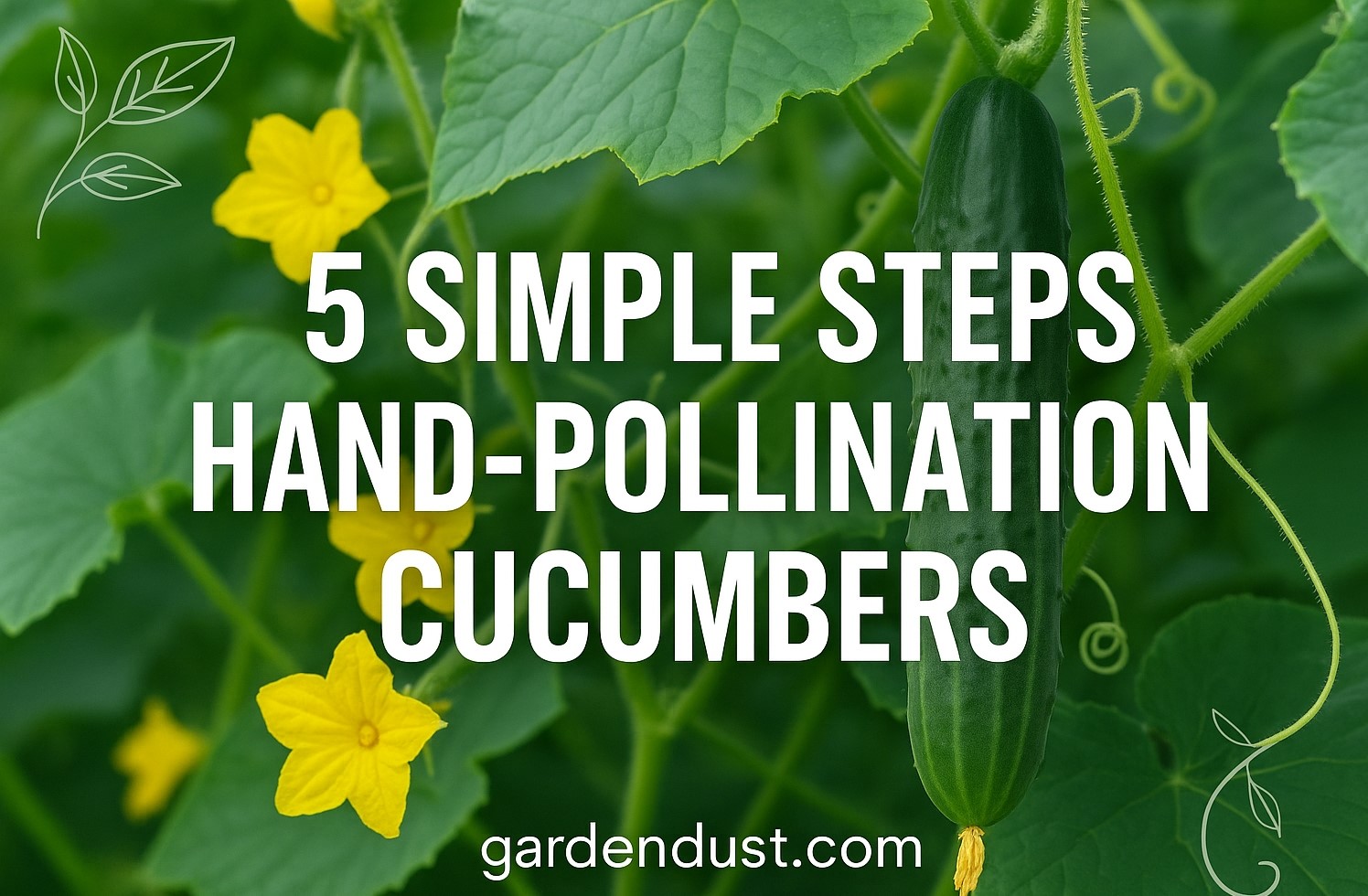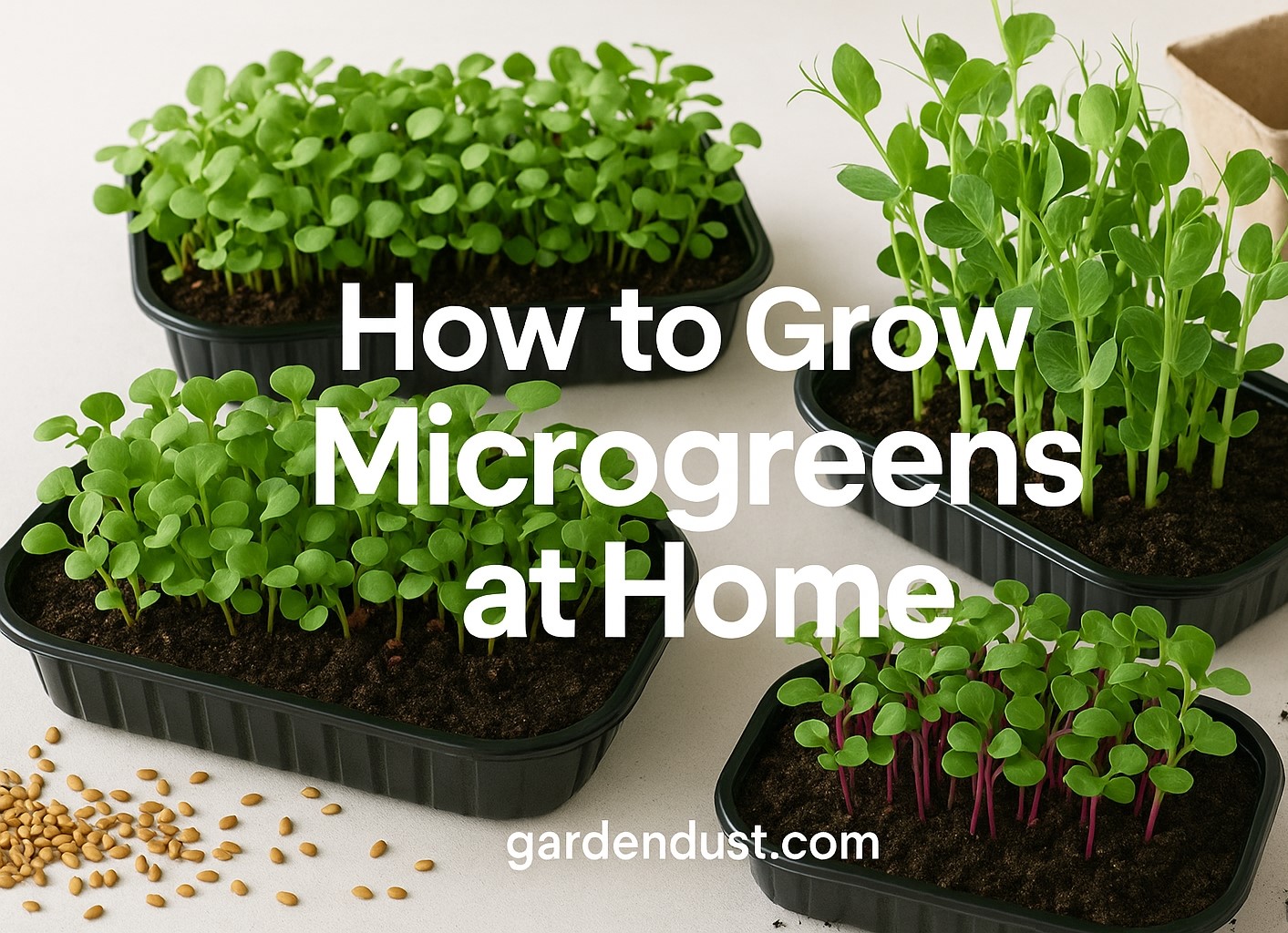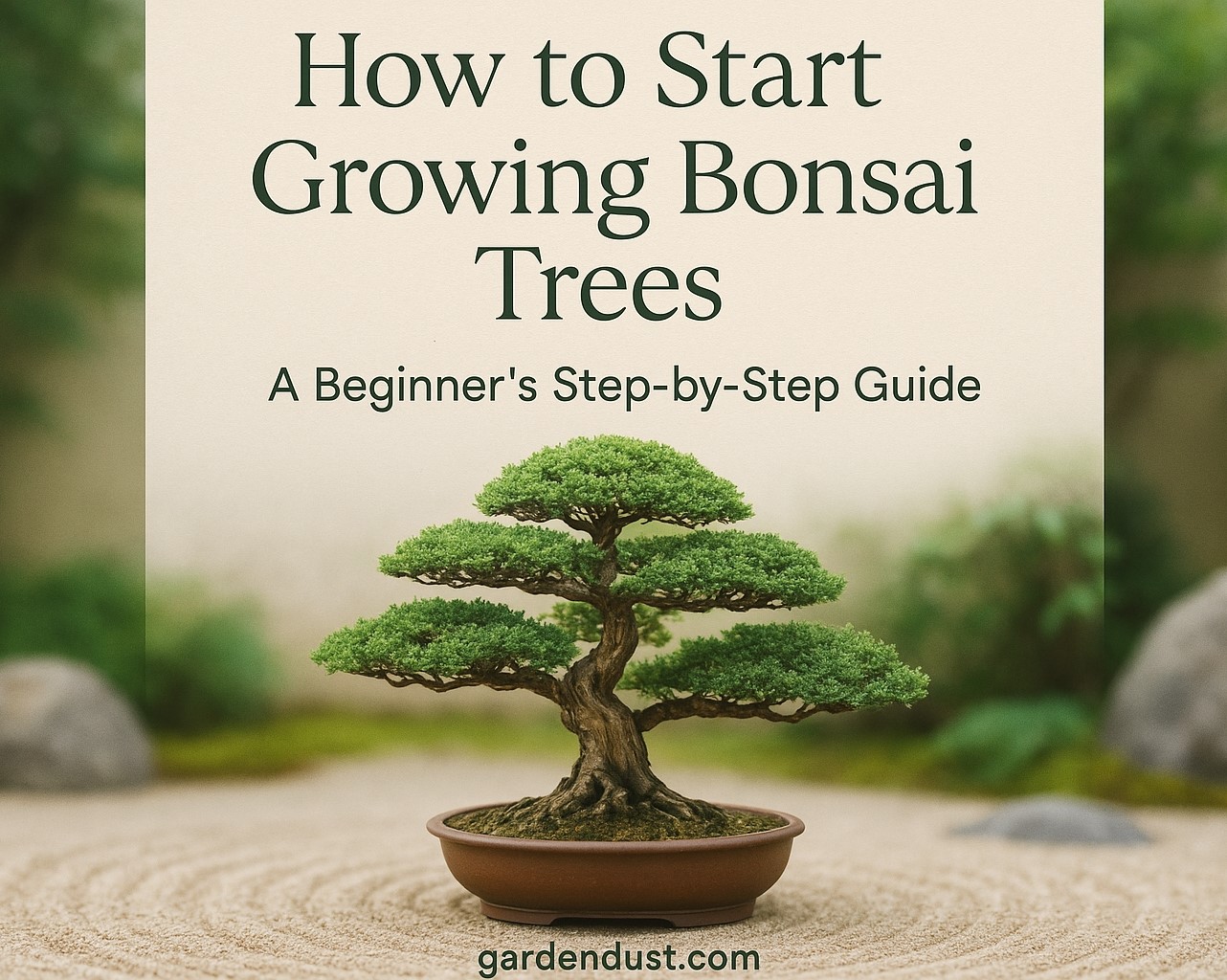Companion planting is a practice that involves strategically placing plants near each other to enhance growth, deter pests, and improve overall yields. Tomatoes, being a staple in many gardens, can greatly benefit from companion planting. By choosing the right companions, gardeners can create a harmonious and productive environment that not only promotes tomato health but also contributes to a more sustainable and resilient garden ecosystem. In this article, we’ll delve into the 15 best companion plants for tomatoes and explore the benefits they offer. Let’s begin…
1. Basil

Basil is a classic companion for tomatoes. It helps to repel pests like aphids, whiteflies, and mosquitoes while enhancing tomato flavor. The aromatic oils released by basil also discourage the development of certain tomato diseases.
2. Marigolds

Marigolds deter nematodes, which are soil-borne pests that can damage tomato roots. Their vibrant flowers also attract beneficial insects such as ladybugs and parasitic wasps that prey on common tomato pests.
3. Nasturtiums

Nasturtiums serve as a sacrificial crop, luring aphids and other pests away from tomatoes. Their trailing vines also act as a natural ground cover, helping to conserve moisture and suppress weed growth.
4. Chives

Chives deter aphids and other pests with their strong onion scent. They also attract pollinators like bees and hoverflies, which are essential for tomato fruit set.
5. Borage

Borage’s blue flowers attract pollinators and beneficial insects while its leaves contain compounds that help improve tomato flavor and health. It’s also known to enhance the resistance of tomatoes to diseases.
6. Parsley

Parsley attracts hoverflies and predatory wasps, which feed on common tomato pests. It’s also believed to improve the growth and flavor of tomatoes.
READ ALSO :-15 Best Companion Plants for Cauliflower
7. Carrots

Carrots and tomatoes complement each other by utilizing different soil depths. Tomatoes have deep roots while carrots have shallow ones. Together, they maximize space and nutrient utilization.
8. Oregano

Oregano acts as a natural pest repellent due to its strong aroma. It’s particularly effective against harmful insects like spider mites and aphids, which can harm tomato plants.
9. Onion

Onions repel a wide range of pests, including aphids, thrips, and carrot flies. They can also enhance tomato flavor when grown nearby.
10. Garlic

Garlic has similar pest-repelling properties to onions and can help deter spider mites and aphids. It’s also known to improve soil health by deterring harmful soil-borne pathogens.
11. Spinach

Spinach provides shade to the soil, helping to regulate its temperature and moisture levels. It also acts as a natural mulch, reducing weed competition and retaining soil moisture for tomatoes.
12. Asparagus

Asparagus helps deter nematodes, benefiting tomatoes grown nearby. It also adds an aesthetic element to the garden with its feathery foliage.
13. Calendula

Calendula, or pot marigold, attracts pollinators and beneficial insects while repelling certain harmful nematodes. Its bright flowers also bring a pop of color to the garden.
14. Dill

Dill attracts beneficial insects like parasitic wasps and lacewings, which prey on tomato pests. It’s important to note that dill can grow quite tall, so careful placement is needed to avoid shading the tomatoes.
15. Mint

Mint deters ants and other crawling insects that can damage tomato plants. However, mint is known to be invasive, so it’s best grown in containers near tomatoes.
Companion planting with tomatoes can greatly enhance the health and productivity of your garden. By selecting the right companion plants, you can create a diverse and balanced ecosystem that naturally discourages pests, improves soil health, and enhances the growth and flavor of your tomatoes. Experiment with different combinations to find the ones that work best for your garden’s unique conditions, and enjoy the benefits of a thriving and harmonious garden space. Happy Gardening…

